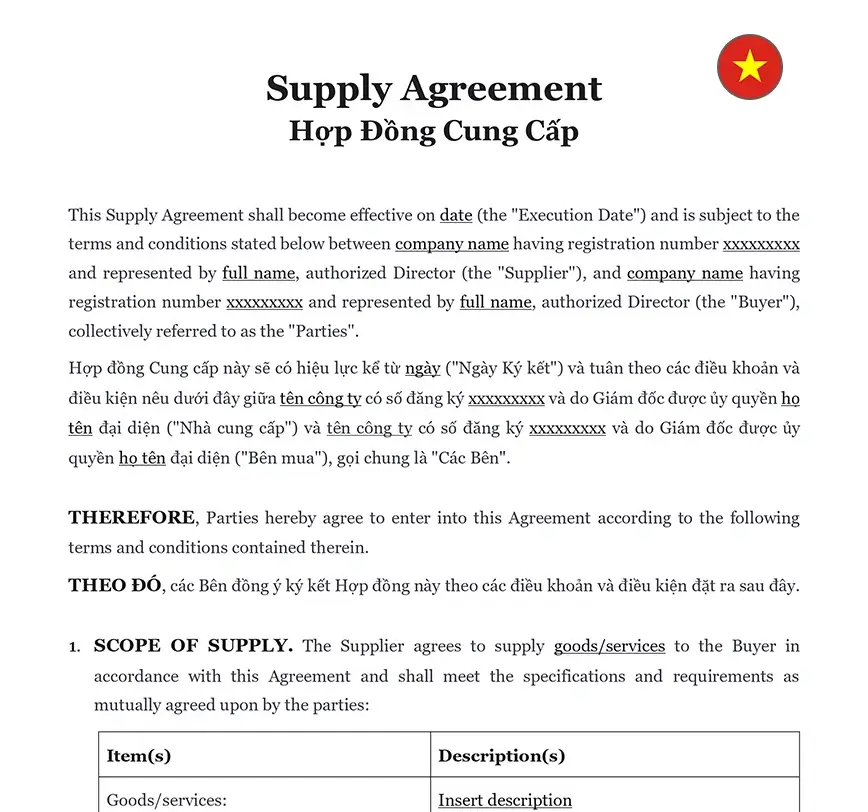Understanding Supplier Contracts
Supplier contracts are foundational agreements that establish the terms of the relationship between a business and its suppliers. These contracts define the scope of the supply, payment terms, delivery schedules, and quality standards. By clearly outlining each party’s responsibilities and expectations, supplier contracts help prevent disputes and ensure that the supply chain operates smoothly. Properly structured supplier contracts not only enhance operational efficiency but also build strong, trustworthy relationships between businesses and their suppliers. Draft effective supplier agreements with our Supplier Contract template.
Key Components of Supplier Contracts
A well-structured supplier contract includes several crucial components, each of which plays a significant role in defining the terms of the supply relationship:
| ➤ Scope of Supply: This section details the goods or services to be provided, including specifications, quantities, and any special requirements. It ensures that both parties have a clear understanding of what is expected and avoids misunderstandings. |
| ➤ Payment Terms: Specifies the payment amounts, schedules, and acceptable methods of payment. This component is crucial for establishing financial expectations and preventing disputes related to payment. |
| ➤ Delivery Terms: Outlines the delivery schedules, logistics, and conditions for the supply of goods or services. Clear delivery terms help manage expectations and ensure timely receipt of supplies. |
| ➤ Quality Standards: Defines the quality requirements and standards for the goods or services being supplied. This section ensures that the supplied items meet the agreed-upon specifications and helps maintain consistent product quality. |
| ➤ Confidentiality Clauses: Protects sensitive information shared between parties during the contract period. Confidentiality clauses prevent unauthorized disclosure and misuse of proprietary information. |
| ➤ Termination Conditions: Specifies the conditions under which the contract can be terminated early, including notice periods and reasons for termination. This component helps manage expectations and provides a clear exit strategy if necessary. |
| ➤ Dispute Resolution: Outlines the mechanisms for resolving conflicts, such as arbitration or mediation. Effective dispute resolution procedures help address issues promptly and fairly, minimizing disruptions to the supply chain. |











